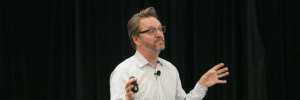What’s the difference between a trained therapist and a compassionate friend? Look at outcomes and you are likely to be disappointed. For example, meta-analyses of studies comparing professionals to paraprofessionals (or students) either find that the latter group achieve significantly better results or, at worst, the same!
A clearer difference can be found in area of ethics. Unlike one’s BFF, a therapist is bound by their commitment to a code of professional practice. Keeping confidences and doing no harm are two prime examples. Most clinicians spend a semester or two studying ethics during their training. Continuing education on the subject is mandated by most state licensing boards in order for therapists renew their license to practice.
Unfortunately, much of current ethics training is focused on staying up-to-date with laws governing the profession or minimizing the risk of malpractice suits. Even the occasional focus on ethical “dilemmas” misses the point, narrowing the focus to the unusual and acting as though once resolved, we can go back to doing what we do.
As my colleague and friend, Dr. Julie Tilsen, observed, “We have detached ethics from the whole of practice, made it an ‘add-on.’ But, whether we realize or not, everything we do—and don’t do—is a matter of ethics. There is always an ethical standard in place, and that ethic typically reflects taken-for-granted values and understandings.”
Julie, who also serves as the Director of Ethics and Practice for the International Center for Clinical Excellence, concludes, “Any approach to practice is incomplete if it fails to articulate a stance on the ethics of the work—and by this I’m referring to the effects of what we do, in every moment of every encounter, with every person—whether or not a “dilemma” presents itself.”
As readers of this blog know, becoming aware of the effects of our work is what Feedback-Informed Treatment (FIT) is all about. That’s why Julie and I will be co-teaching the first ICCE small group intensive on Ethics this summer. In it, we’ll answer the question, “How do we know when clinical practice is responsible and ethical?” holding the assumption that ethical practice requires that our work is engaging and effective—from our clients’ point of view. The course will venture far beyond the traditional focus on legal issues and policy matters, helping participants learn an ethical stance that is both consistent with and informed by FIT.
The workshop is appropriate for case managers, social workers, professional counselors, alcohol and drug treatment professionals, psychologists, psychiatrists, clinical supervisors and agency managers. It is open to all practitioners regardless of discipline or theoretical orientation but of special interest to FIT practitioners who are interested in highlighting their response to client feedback as central to ethical practice.
The course is limited to 35 participants so register today. If you need Ethics CE’s, this is the course to attend!
Until next time,
Scott
Scott D. Miller, Ph.D.
Director, International Center for Clinical Excellence




Ethics, understood broadly as this post defines it, is the core of our work. This includes our duty to become and remain excellent in what we offer and in how we offer it. Many of our clients/patients’ problems arise from or are made more difficult by past lapses (or worse) in relationships at various times in their lives, in other words, lapses in ethics. So it is both logical and natural that their recovery and growth require ethical care.
Thanks for these thoughts Joseph. Ethics and excellence go hand in hand.
Hello Scott, you highlight a vital core aspect of the therapist/client relationship here. Do you offer your workshop online for International folk? I still have memories of an excellent keynote address at BACP conference in Edinburgh a few years ago.
Hi Elizabeth…I remember that conference! I was in the UK in January doing 2 days on feedback informed supervision. Had a wonderful stay and met some really fantastic practitioners. We are working on several online courses. The Ethics course is not in production right now. Perhaps in the future. In the meantime, almost half of participants at our Chicago events are coming from overseas. You can maximize your time on the ground by attending one of the other two events being offered the same week: https://www.eventbrite.ie/e/fit-implementation-intensive-training-2015-tickets-13008971183 and https://www.eventbrite.ie/e/fit-professional-development-intensive-tickets-14207409745
I would love to add my voice to the request for some sort of online version of this, particularly an on demand one – down here in Australia it is expensive and time consuming to get anywhere!! Plus a lot of the great scheduled online seminars/workshops are generally in the middle of the night for us. I’m dedicated to providing an excellent/ethical service for my clients but getting up at 2am is just a step too far…! Even for your very engaging workshops!!
I totally agree with the need for strong ethics in therapy. I know people who are in jail, putting up websites stating that they are therapists. The lack of regulation and ethics leaves the public vulnerable to anyone who calls themselves a consultant, life coach, therapist, or other label that they dream up.
Dear Scott!
Thank you so much for continuously updating us on exciting and deliciously thought provoking bits of information! We are not in the business of solutions. We are in the business of ideas. And there is no way of creating a recipe for ideas, you just gotta get right in there with them and be curious about every twist and turn. And at the very peak of the best conversation we`ve had in years with a client we may find ourself hitting pause and bursting out “this makes absolutely NO SENSE AT ALL”. And we`ll laugh, they will get back to their lives and never need advice again. But hey, now Im just rambling.
Looking forward to seeing you again in Stange =)
All the best,
Bjørnar
Thanks Bjørnar! See you in June.
Scott, PLEASE consider offering this course online and with a not to the professional boundaries needed in online communities. This is an ongoing source of concern for many of us who moderate and facilitate online communities of mental health professionals. The rapid decline of professional behavior online is abysmal and we are in need of more thoughtful and more effective ways of curbing these “slips” and intentional choices to disregard what has historically been deemed “professional standards of behavior.”
A huge ethical violation that I see routinely is when individual therapists treat a client who is married. Without engaging the spouse as well in a treatment for which the therapist has a systems perspective, the odds are significant that the patient will perhaps feel better from therapy but at the cost of the marriage.
Worse even than that is when there are two therapists, a his and a hers therapist. Then the odds zoom up that the marriage will end in divorce because of iatrogenic (doctor-induced) damage.
A divorce is in systems perspective a fatal outcome, just as suicide would be from an individual therapy perspective.
Hi Dr. Heiter:
Thanks for posting to the blog. Anything in particular from the post you were responding to?
Scott
I have continually questioned the differential impact of ‘certified professionals’ and those who strive to act therapeutically e.g. nurses, paramedics, occupational therapists- all of whom are bound by the ethics of a regulatory body, which includes the values you have articulated. I have witnessed and learned from all of these professionals. Furthermore, I have established groups with parents, who have then gone on to be volunteers and whilst they do not have a regulatory body, have shown the highest code of values and ethics.
I agree with the importance of ethics. I also agree with the need to critically reflect on different perspectives, personal, social and cultural values. and the boundary between self and another. After many years as a lecturer and practitioner/researcher, in child, adolescent and family mental health, I still question the role of ‘therapists’ compared to those who act therapeutically. As you indicate ‘compassion’ is a human quality – which some individuals (therapists and non therapists alike) can either abound in or be extremely lacking in. I cannot be convinced that ethics and values and the desire to do no harm is an exclusive preserve of ‘ therapists’. Therapy seems to have become an extremely lucrative business- both in terms of the training required and then fees for providing therapy. It concerns me that these conditions can lead to a hegemony – just as the medical model became a dominant ideology- with both therapeutic and iatrogenic consequences.
For all ‘helping professionals, an ethical code of practice is essential. However, both compasison and values are traits of many individuals. The duty to reflect on these and be prepared to learn and change enables therapeutic practice , but it seems to me that this includes a broad church.
After more than 30 years, I remain optimistic about humanity because of the capacity that certain individuals can offer at different stages and in different situations. I’ve witnessed the trauma that can lead to a failure to offer compassion and the family and systemic damage that can arise from this. I’ve also had the privilege to see the healing that can occur from a diverse range of sources , which can help the most vulnerable on the path to recovery.
Many years ago, I was trained in ‘Life space’ therapy and have experienced how critical moments can be used to develop iterative change. I’ve seen nurses, nursery nurses and auxiliaries use the techniques to astonishing effect and later have seen vulnerable parents build on their strengths , using these techniques. However, they needed support and help to improve their relationships to the whole set of systems with whom they interacted, in order to have the therapeutic space to be able to engage.
I attended workshops with you in Newcastle (UK) Scott ,and have huge respect for how you have shared and democratised therapeutic strategies.
I would really welcome your thoughts (and others) on the current power ascribed to certified ‘therapists’ and the contrast to those , who provide 24 hour therapeutic care on low or no wages.
Therapy is one human being helping another in a time of need. That’s exactly what a compassionate friend does. A human being in need doesn’t need something diagnosing them, or fearing they might get too upset.